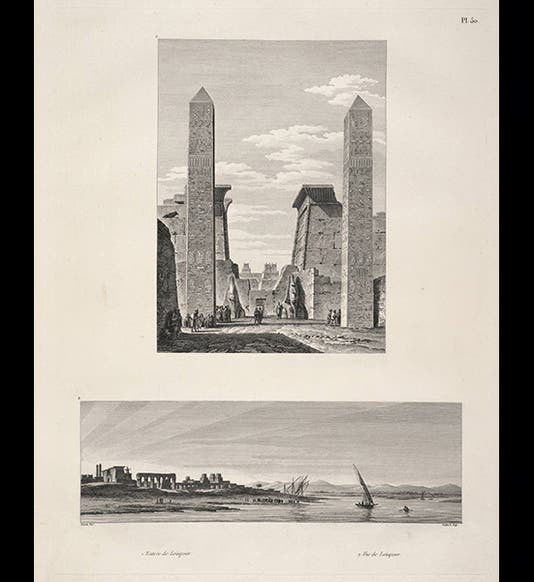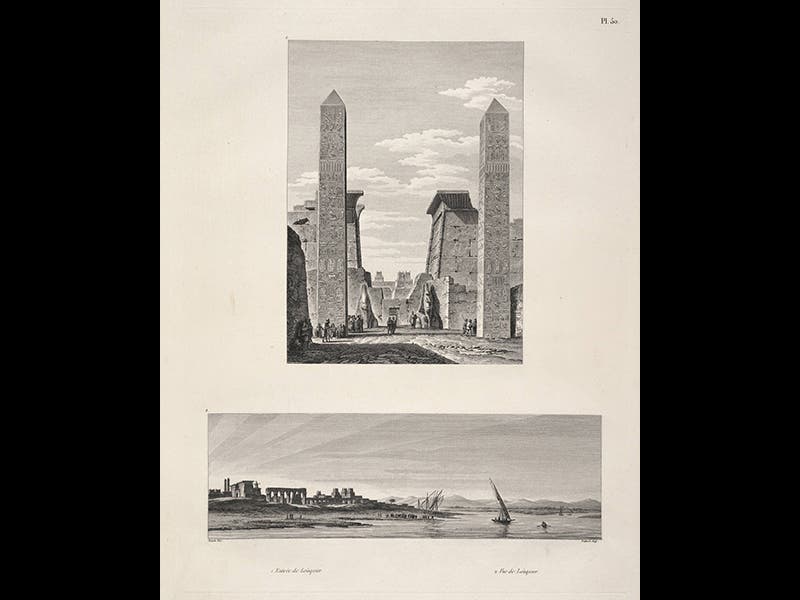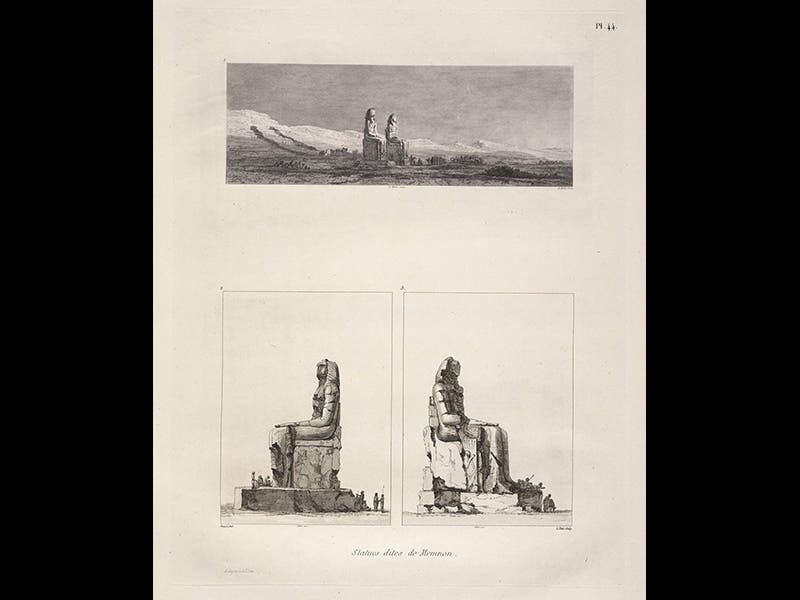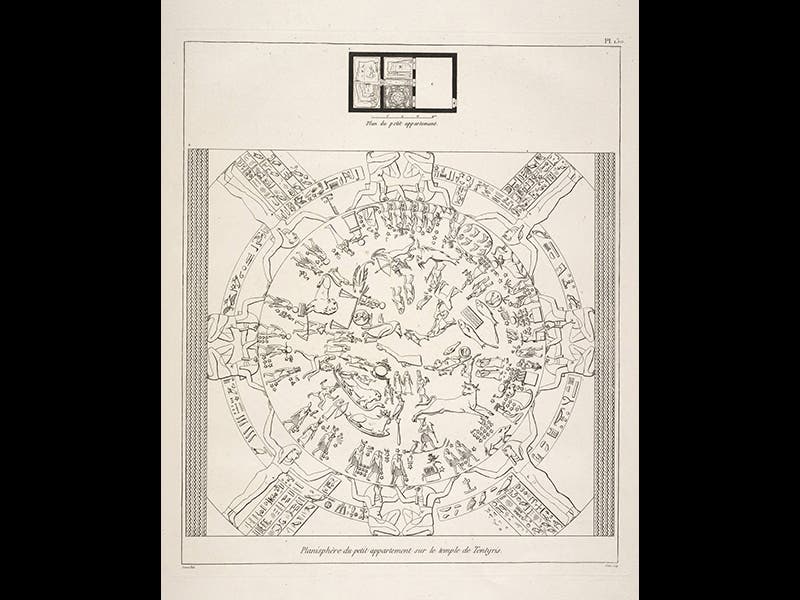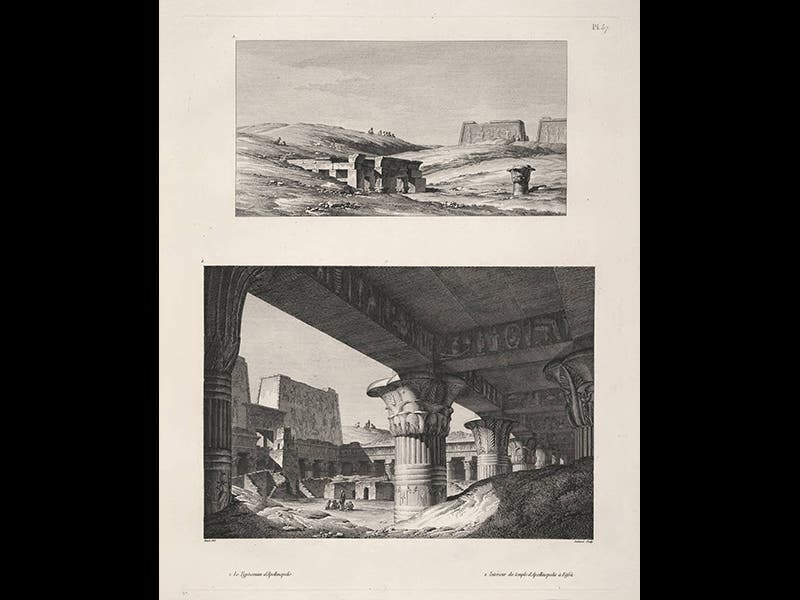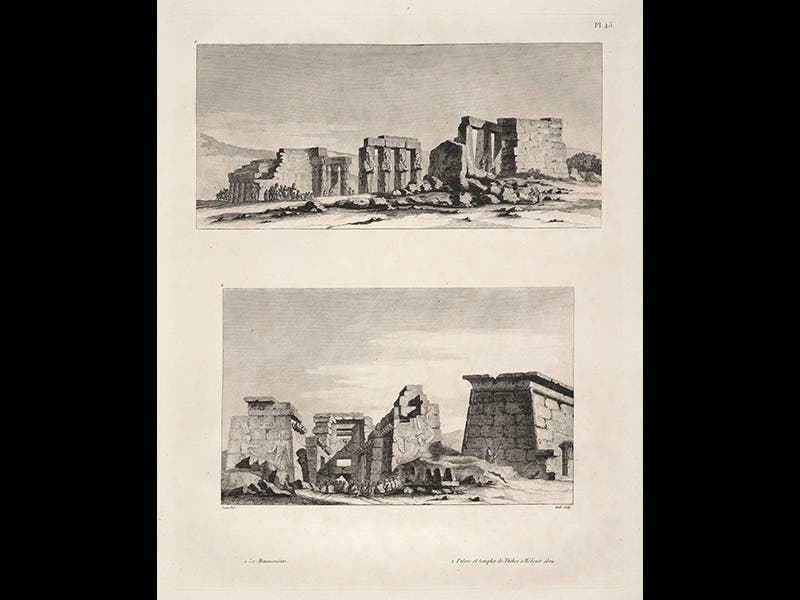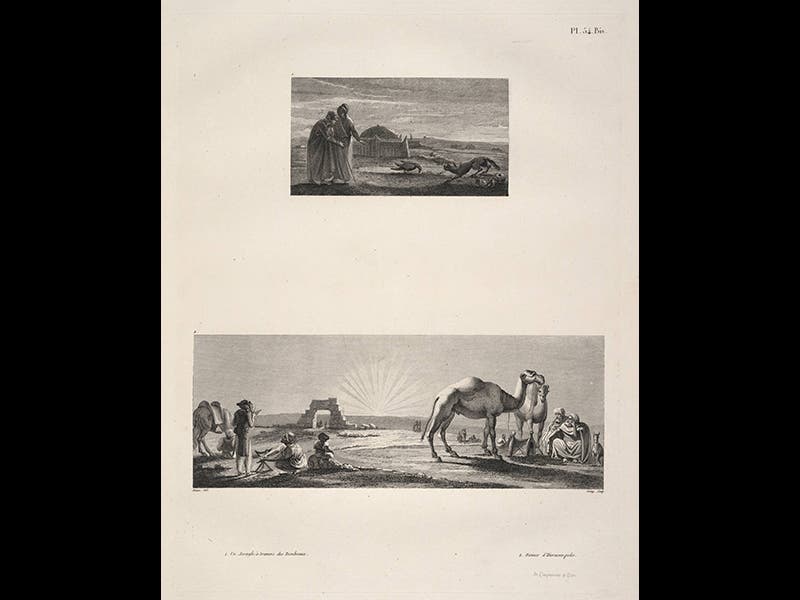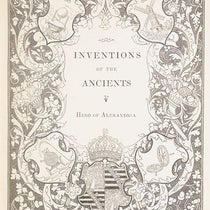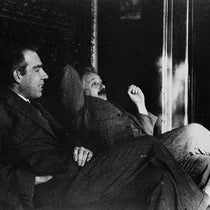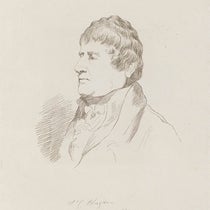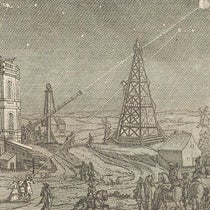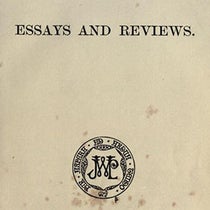Scientist of the Day - Dominique-Vivant Denon
Dominique-Vivant Denon, a French artist, died Apr. 27, 1825. Denon was a socially-fashionable artist who survived the French Revolution and befriended Napoleon and was invited to come along when Napoleon invaded Egypt with his coterie of scientists in 1798. When Napoleon sent his first military force up the Nile to chase down the Mameluke opposition, Denon was the one artist who went along. Denon was thus the first to see the ancient wonders of Thebes, Edfu, and Philae, and it was Denon who discovered the ancient zodiac in a temple at Dendera (see third image above) that would later so enthrall the astronomers back home. He sketched as rapidly as he could, since the troops were constantly on the move, and when he arrived back in Cairo, and revealed what he had seen, Napoleon immediately dispatched many of his young topographical engineers to survey in depth what Denon had only glimpsed.
Denon himself headed back to Paris, where he soon published his Voyage dans la Basse et la Haute Egypte, pendant les campagnes du general Bonaparte (Voyage into Upper and Lower Egypt, 1802), which provided a first look at the wonders of Egypt for the public (the official publication of the expedition, Description de l'Egypte, would not begin to appear until 1809, and many of the plate volumes illustrating the antiquities would not be published until the 1820s). Denon himself was given directorship of the Louvre, or the Musée Napoleon, as it was then called, which he proceeded to fatten with the spoils of Napoleon's marauding through Europe, especially Italy. We have the original edition of Denon's Voyage in the History of Science Collection; it was displayed as part of our 2006 exhibition, Napoleon and the Scientific Expedition to Egypt.
The other illustrations show the temple at Luxor (first image), the Colossi of Memnon at Thebes (second image), the temples at Edfu (fourth image) and Medinet Habu (fifth image), and a self-portrait of Denon at work, sketching the desert (sixth image).
Dr. William B. Ashworth, Jr., Consultant for the History of Science, Linda Hall Library and Associate Professor, Department of History, University of Missouri-Kansas City

